The complete guide to home viewing
Get Screen Gab for everything about the TV shows and streaming movies everyone’s talking about.
You may occasionally receive promotional content from the Los Angeles Times.
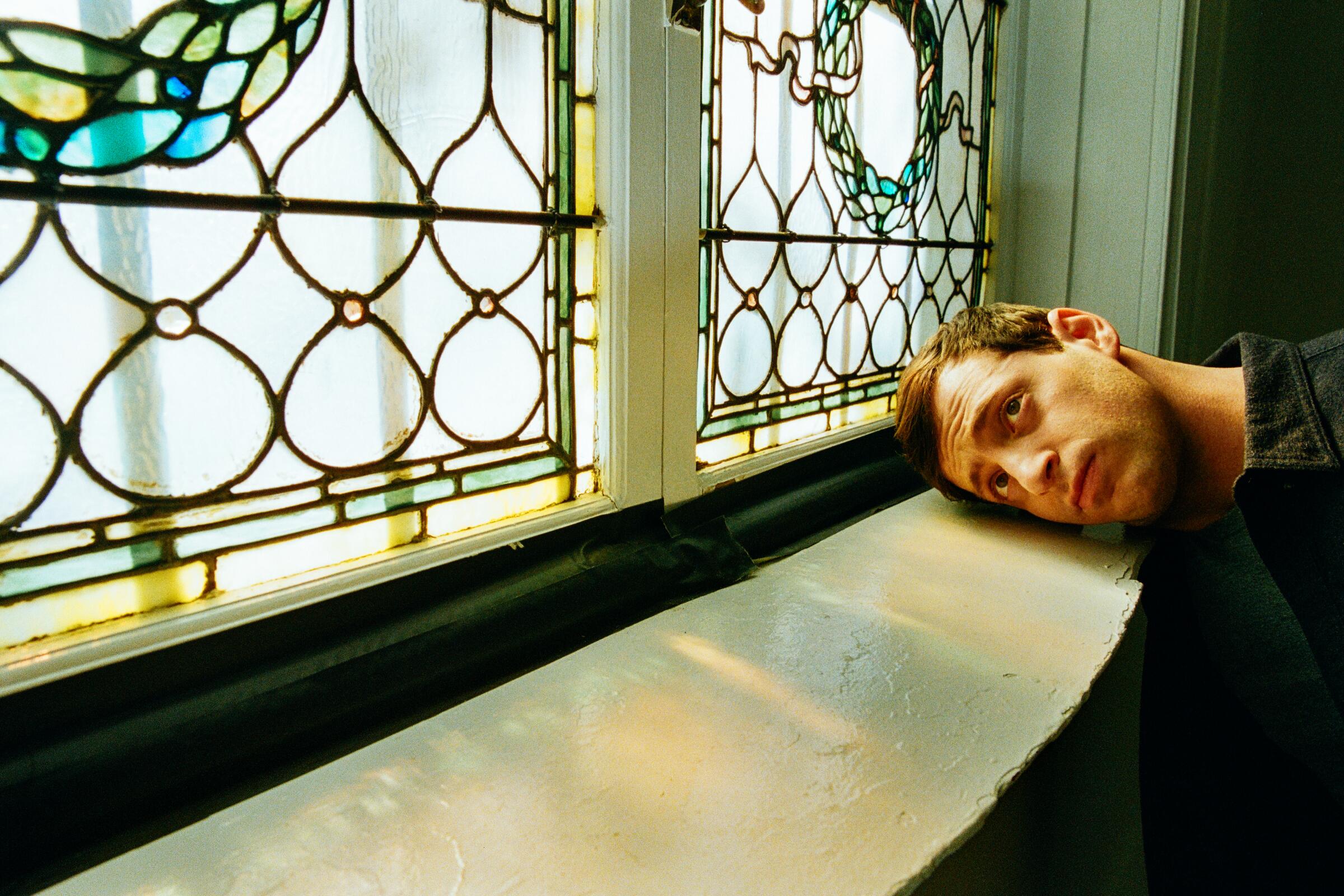
Not everyone wakes up to an avalanche of antisemitic tweets and then decides to attend a meeting of white nationalists in New York City. Because, well, not everyone is Alex Edelman, who has recounted the evening hundreds of times onstage in his hilarious and thought-provoking hit show “Just for Us.”
And after spending six years revising his incisive 90-minute set (with the help of numerous comedy legends) and performing it all over the world, he’s ending it with an encore run in Los Angeles — just before the April 6 release of the corresponding HBO special, filmed during the show’s run on Broadway last summer.
“Part of the reason this show is ending is because I can’t do it anymore,” he told The Times. “Doing it can be a wrenching experience, but I’ve loved it.”
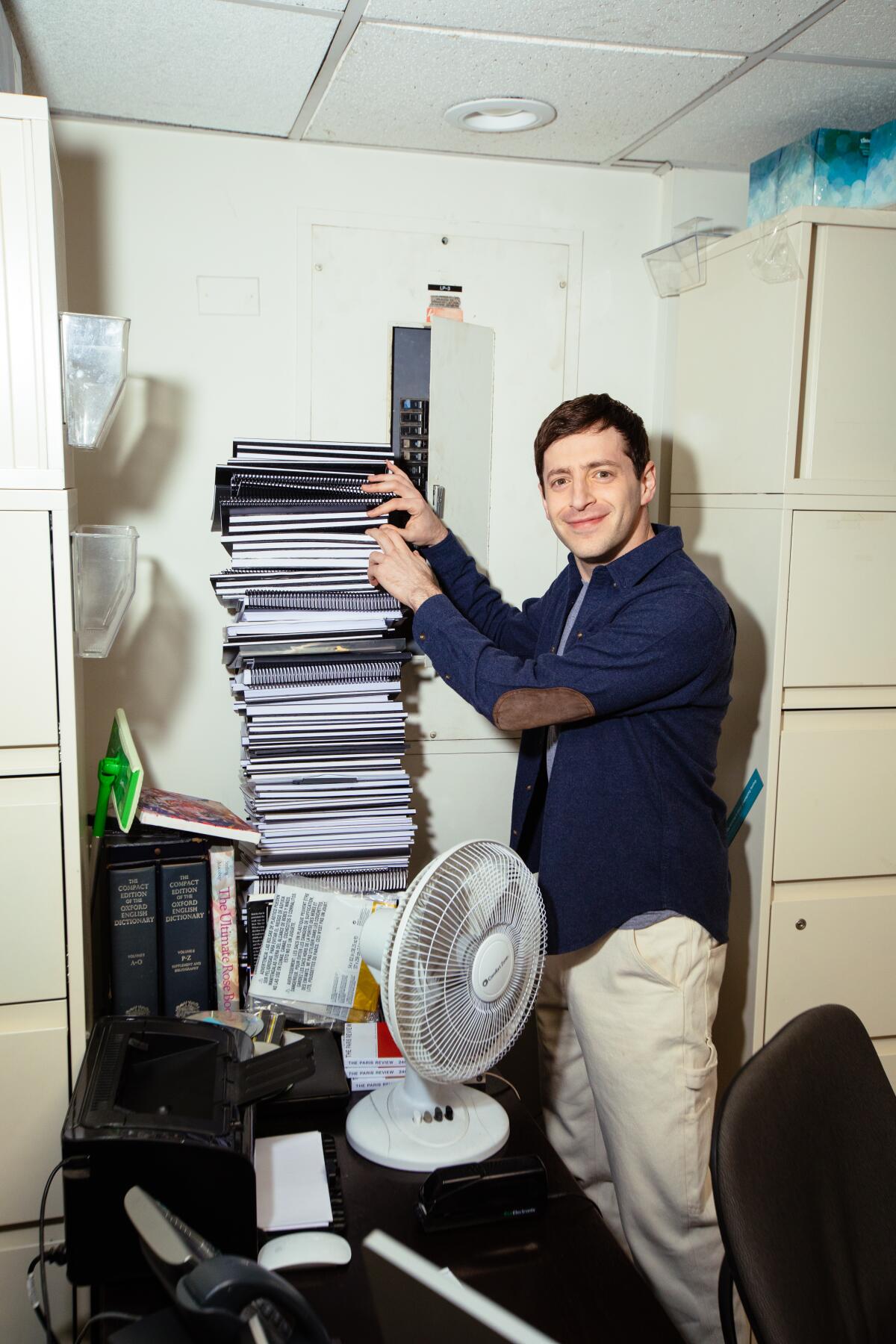
Ahead of his final seven performances of “Just for Us” at the Mark Taper Forum, the comedian participated in an exit interview of sorts, where he talked about the trick to recounting the time his Orthodox Jewish family celebrated Christmas, the loss of his director and close collaborator Adam Brace, and the to-do list for starting a new show — one that possibly addresses the decades-long Israeli-Palestinian conflict, a topic that’s fascinated him since childhood. This conversation has been edited for clarity and length.
You attended the white nationalist meeting in 2018. When did you realize it’d make good onstage material?
I didn’t realize it until other comedians and other people pushed me toward it and told me it was a good idea. I’m an idiot — I just thought it was a fun story to tell friends. I told Nick Callas [a fellow stand-up comedian] the story, and he made a joke about a detail in the story, and I thought, that’s a pretty good joke. Then I did it on stage as a three-minute joke while opening for a comedian friend of mine who, I would say, I didn’t think had my best interests at heart. That comedian went, “That story about that apartment is really weird, huh?” and I thought, “Wow, they feel a little threatened by that joke.”
Then Adam clinched it. I told him the story, and he was like, “There’s something there.” It was a work in progress through 2018, and even though it won awards and got good reviews, it went to bed for all of 2019. I desperately wanted someone to make it as a special then. Thank God nobody did, because it needed more work. I’ve told this specific story of the meeting steadily since 2021 that it’s become the memory, which is fascinating.
Comedian Alex Edelman brings his acclaimed Broadway show, in which he muses on Jewish identity, empathy and how he came to hang out with a group of white nationalists, to the Mark Taper Forum.
You’re now known to ask comedy greats for advice. Whose words of wisdom helped you most?
Steve Martin gave me a tag [for a joke], Stephen Colbert gave me a performance suggestion, and Jerry Seinfeld pointed out something that got a laugh every time but was really a flaw of the show. Billy Crystal gave me the advice to move from a handheld [microphone] to a headset, which I wasn’t sure about because I thought the show would lose its stand-up roots. By the way, I pried that note out of him. I knew from looking at him during the show that his brain was going, and I wanted what was in there. Not only did he offer that advice, he came back when we taped the special.
Adam’s instincts were almost always right, and it eats at me a little bit that it took me longer to come around to them than it probably should have. He was militant about prioritizing comedy and cutting distractions. I was once arguing for a detail that I thought was pretty good and belonged in the show. I said, “It’s true!” and he said, “Well, it’s a shame it isn’t more entertaining!”
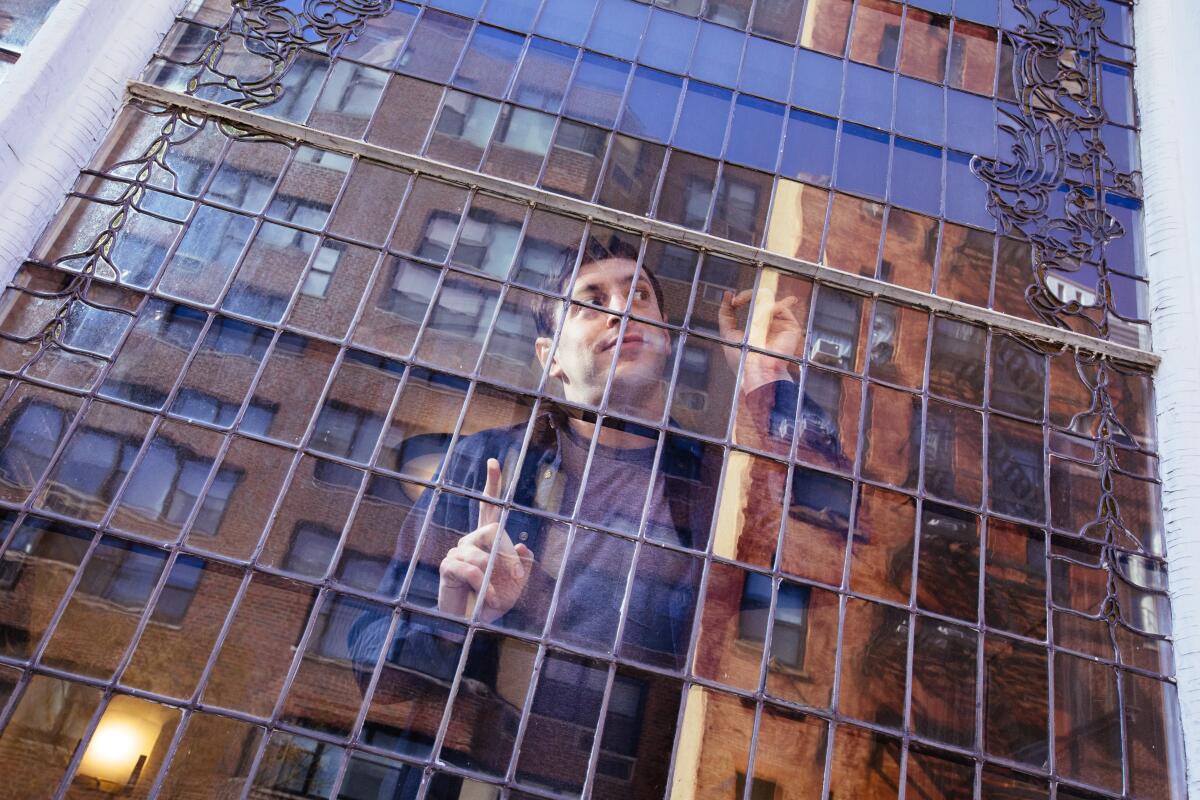
A few weeks after Adam passed away, a woman came up to me after one of the Broadway shows and said, in front of a whole bunch of other people, “Do you think your show would be better if your director was still alive?” But the funny thing is, if you think about it, it’s not a cruel thing to say. The answer is undoubtedly, yes. He was my collaborator, and I loved him, and he made my shows better.
Have you ever heard from anyone who also attended that meeting?
Not a single person. I thought I saw one of them in Union Square a few years later, but I didn’t want to go up to somebody like, “You look just like this person from this meeting of white nationalists in Queens!” By then, I realized that I had lost their faces and I couldn’t pick any of them out of a lineup. I don’t know if they’ve ever seen the show, or if they’re aware of it. If they do see it, I hope they like it.
By the way, the show is not a think piece about white nationalism. I’ve said no to so many counter-terrorism panels! No, I went to this thing one time and followed them on Gab [a social network used by the far-right]. I’m not some expert on this.
What’s the most difficult part of the show to perform, whether technically or emotionally?
There’s a deep emotional pause that [creative consultant and the special’s director] Alex Timbers encouraged me to take. In that moment, I feel all of the feelings, all of the joys of performing the show, all the loss of the people that aren’t around anymore. Some nights I can just get through it easy, some nights I feel like crying. That part’s hard. People were like, “God, you’re really acting there,” and I’m like, “No, I’m sad.” Part of the reason this show is ending is because I can’t do it anymore. Doing it can be a wrenching experience, but I’ve loved it. I’m lucky to have good friends who buoy me through the more stressful times.
And from a technical perspective, the Christmas story. It’s very fun to do. It’s my favorite bit, but it’s extremely high energy; it’s gotta balance fast and slow and it’s unlike anything I’ve ever done before. Adam always said it was his favorite piece of stand-up he’s ever worked on. He and I really kneaded it to make it the funniest part. But, gosh, it can be challenging, and if I take my eye off the ball, it all unravels.
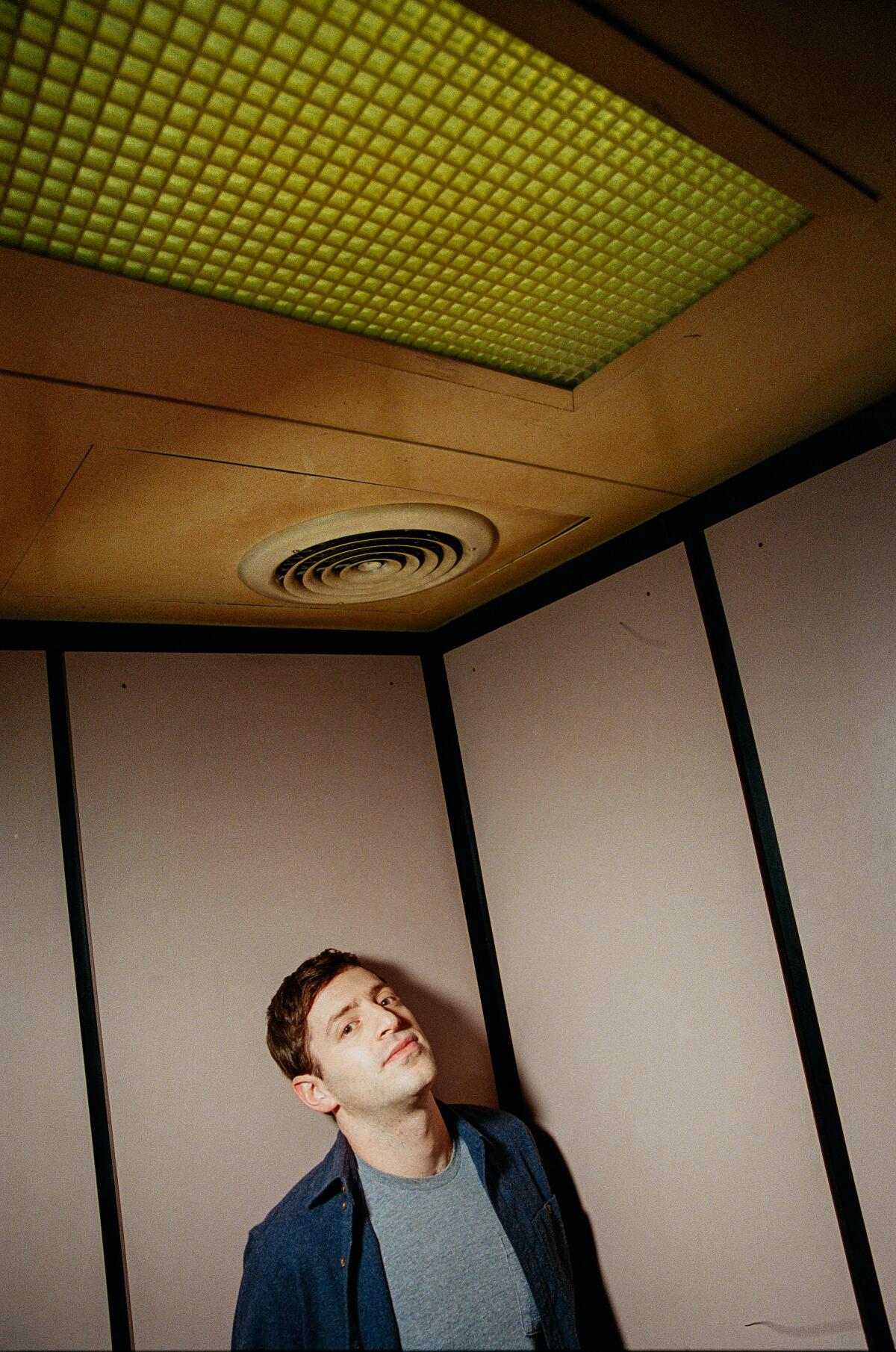
I love when you announce to the audience, “I’m only telling you stuff I think you’d enjoy. If you really knew me, you might not like me.” Why include that?
It’s about performance. The show is based on this real-life story, but I think it’s made so much better by the fact that there is artistic license, which I’ve always been really comfortable with. Because truly, the curatorial decisions that you make as a comedian are artistic licenses. Your biases, your prejudices, they always show, and examining those is what makes it interesting.
Like, what if I have opinions on complex political issues, or the way that people should move in the world? Would I still be afforded the same level of empathy that I get from an audience? I have a line in the show that isn’t in the special because it’s one of those things that just belongs in the live show. I say, “I could lose half of you with one line about Israel right now, the other half with two.”
The truth is, our goodwill is sometimes conditional. So that line is about the reality that our goodwill is sometimes conditional, and how we court goodwill from each other and choose to give each other empathy.
The founding partner of Levity Live is the guiding force behind comedians Bert Kriescher, Taylor Tomlinson, Jeff Dunham and more.
You’ve regularly met audiences in lobbies afterward. How long did you usually chat?
Five minutes to an hour and a half. I don’t mind it at all. It’s informative to the special to know what people take away from it. In some places that are slightly more exurban or rural, some people were quibbling with the politics in the sense that people were siding with the folks in the meeting over me a little bit. And people often tell me how timely the show is, but people have been telling me that since 2018, because that’s when [the] Tree of Life [synagogue attack] happened.
The only silly question I get is, “Do non-Jews get it?” Of course non-Jews get it. The show is about antisemitism, but it’s really about assimilation. One guy told me, “I’m from a family of musicians, so I understood everything you’re talking about.” People receive it as comedy; it’s for everyone. I was in a part of the UK where there aren’t a lot of Jews, and pretty much the whole audience was waiting there to chat.
Not to be mawkish, but one of the things I like about the show is that if I saw it when I was 18, I think I would’ve enjoyed it. It’s special for me when a kid in a yarmulke comes up to me and is pretty psyched.
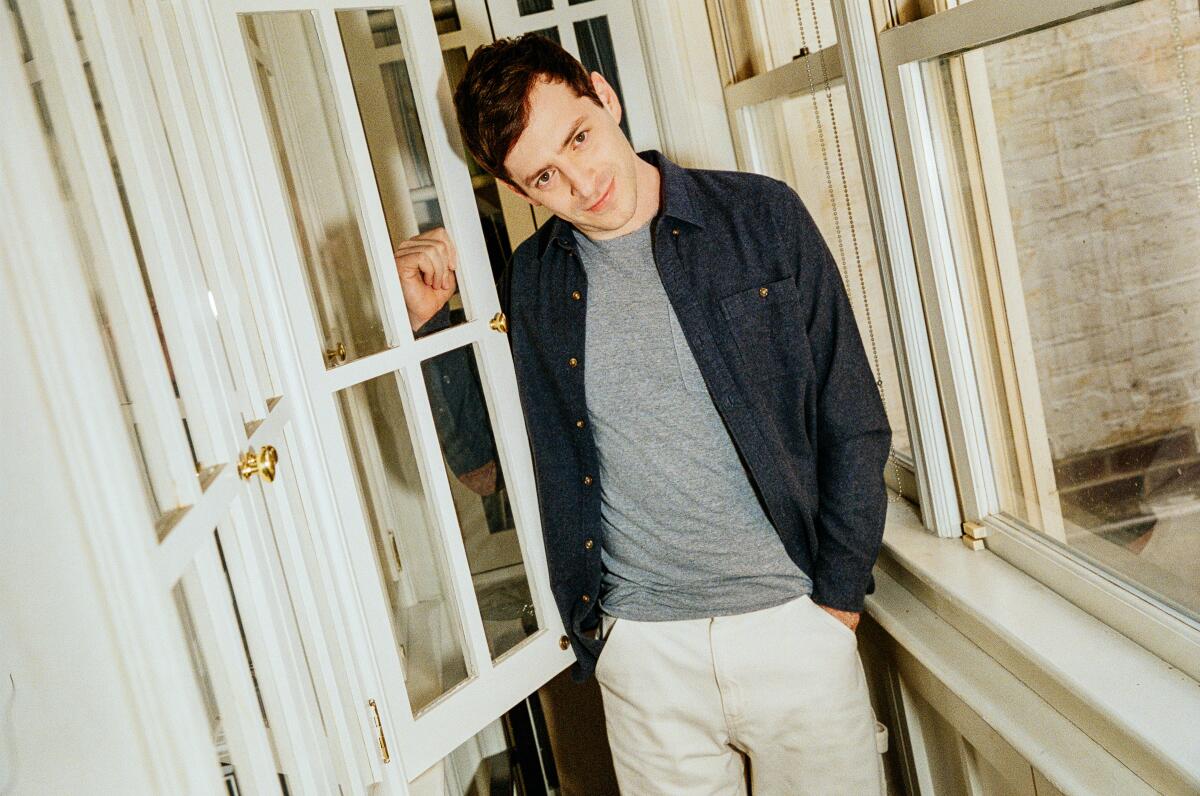
People can’t chat with you in person after watching the special. If they don’t reach out to you directly, what would you like to tell them?
I’m excited for people to see it, and I’m excited to hear from people about it. We worked really hard on these jokes for years to make a special that makes people laugh. I’m truly not thinking of anyone in particular, but a lot of people make specials that have a great point of view but aren’t funny enough. So I hope that, in this off-color time period, people have a good time.
I’d also encourage people to watch it with a friend, or talk afterward with somebody else about what they think the special is about and the questions that the special raises. I’ve had good conversations with folks after shows about things like empathy and productivity and how we speak to each other and what we owe each other, and that’s probably the thing I’ll miss the most about [performing it live]. I guess the throughline of all of the questions you’re asking, or the questions I’m answering, is that other people have made the show much better.
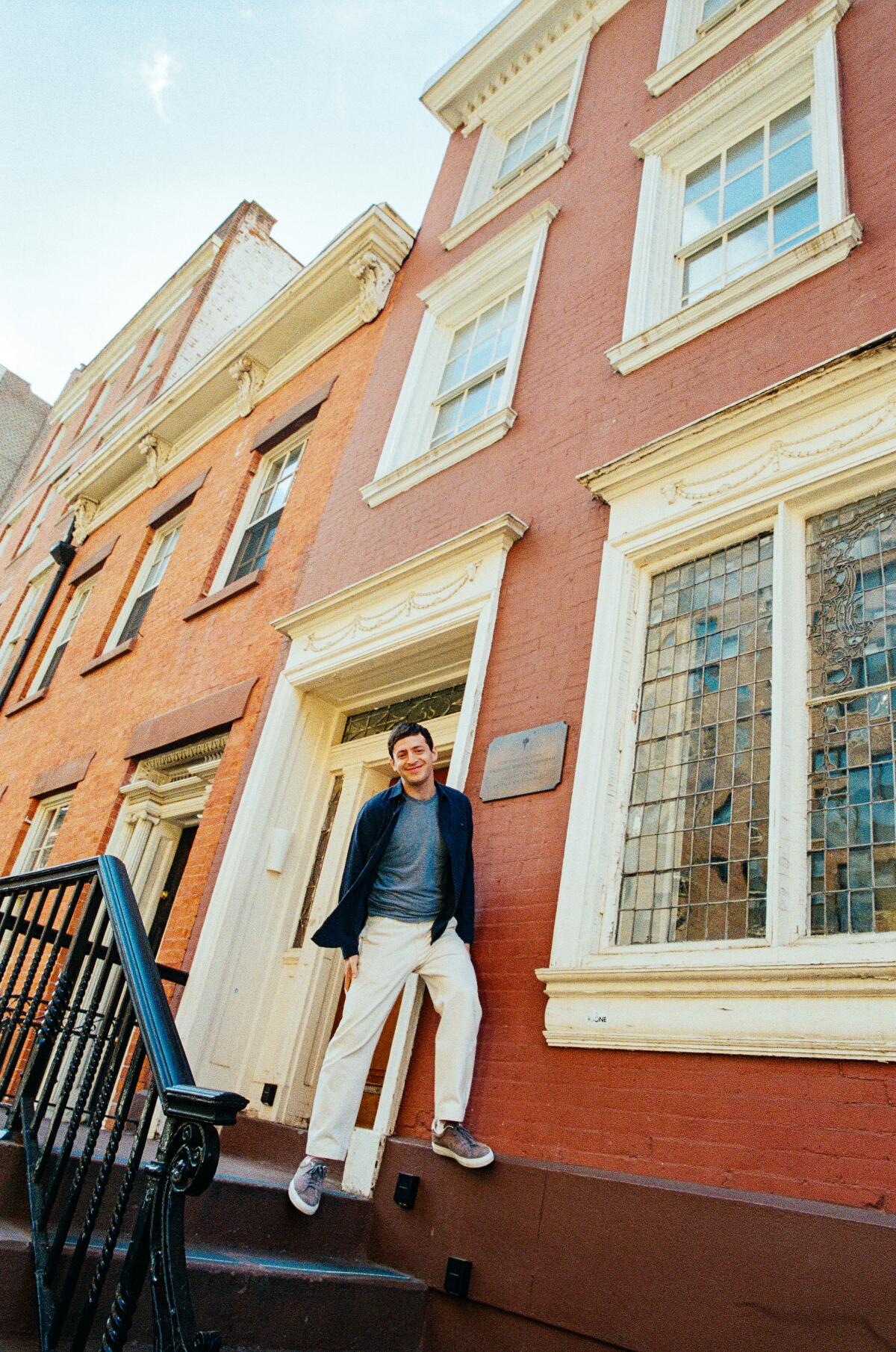
Your upcoming gigs include the Netflix Is A Joke fest in L.A. How are you feeling about performing new material?
Oh my gosh, I have to start working on it right away. I’m trying to write a new, complete piece. It should be fun, it should be fine. It’ll be cool to try to do new stuff. I hope I still can.
You’ve previously said that you want to perform something about the Israeli-Palestinian conflict. Is that the plan, soon or eventually?
Yes. My agent at the time I said that said to me, “Oh, that’s great. We’ll just call it career suicide.” And [while performing “Just for Us,”] I’ve had people from both sides of the political spectrum asking me why the show isn’t about Israel and Palestine, which is interesting because, obviously, like everybody else, I’m watching that with horror. But I would love to.
There are certain theatrical forms that can speak really well to a big issue and ask really productive questions. If I can figure out a way to wrap my arms around that comedically, that’d be interesting and important and good. I don’t know that I can, but part of the reason this show is ending is so I can tackle bigger challenges like that and have the brain space to do it. So I don’t know. But maybe. Hopefully.
Sweetin talks about how injecting dark comedy into her lighthearted show ‘Family Dinner’ at the Bourbon offers her a ‘pressure release’ inspired by her late TV dad.
‘Just for Us’
Where: Mark Taper Forum, 135 N. Grand Ave., L.A.
When: 8 p.m. Tuesdays-Fridays, 3 and 8 p.m. Saturdays, 2 p.m. Sundays. (Check for exceptions) Ends March 31
Tickets: Start at $40
Contact: (213) 628-2772 or https://www.centertheatregroup.org
Running time: 1 hour, 30 minutes
Where: Max
When: Anytime, starting April 6
The complete guide to home viewing
Get Screen Gab for everything about the TV shows and streaming movies everyone’s talking about.
You may occasionally receive promotional content from the Los Angeles Times.